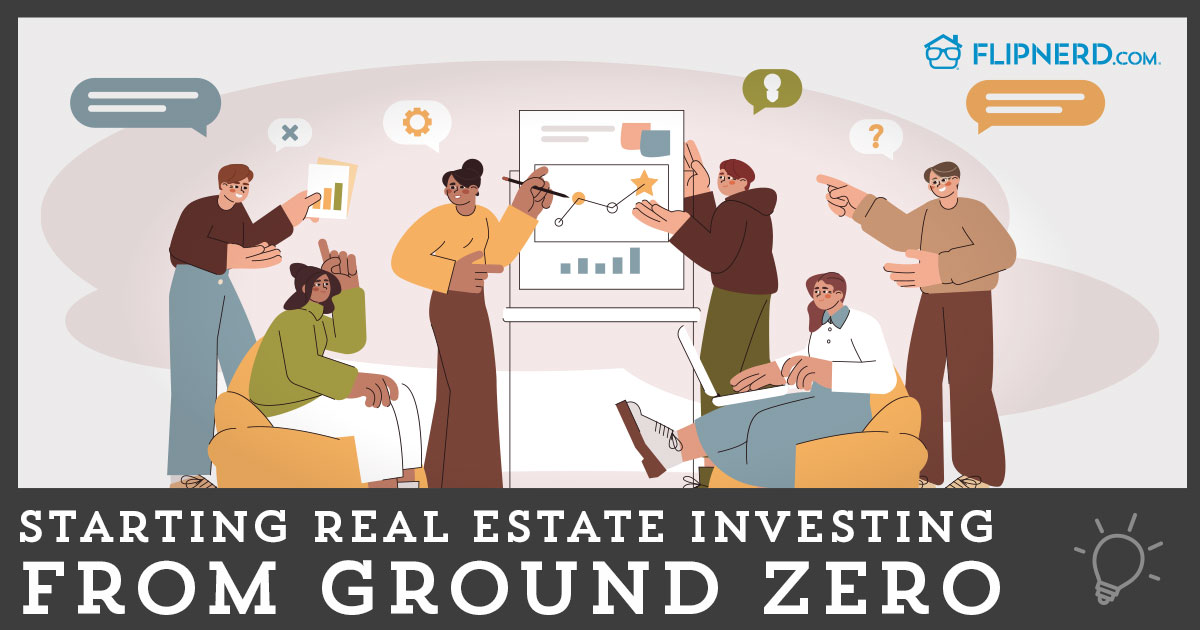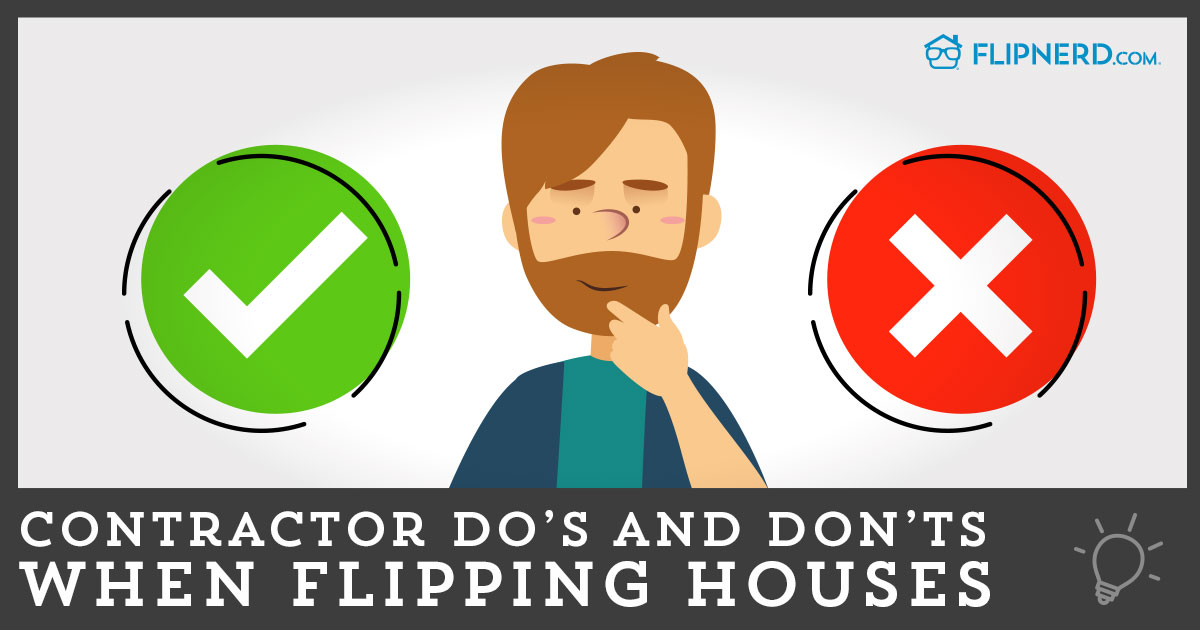Any time you start something new, there’s going to be a learning curve.
Mistakes will be made and hopefully, you’ll learn from them.
If you have a mentor to help you through getting started, this will help bypass some of the mistakes you could potentially make, but we don’t all have a mentor to go for guidance.
There are some mistakes that are easy to make when you’re new to the industry and figuring your business out. Luckily, if you do them once, you’ll most likely learn from your mistake and change your strategy the next go around.
“A man should never be ashamed to own he has been in the wrong, which is but saying… that he is wiser today than he was yesterday.”
Alexander Pope
1. Not Generating Enough Leads
 Generating leads is CRITICAL for real estate investors.
Generating leads is CRITICAL for real estate investors.
You can generate leads in a number of different ways but at the end of the day, volume is going to get your phone ringing.
The problem most newer investors run into when trying to generate leads is that they don’t have a substantial amount of marketing funds to apply towards sending out direct mail or having pay-per-click done.
This is where a bit of hard work can come in handy.
If you don’t have enough money to get your online or direct mail marketing going, you might have to put in the leg work and start driving for dollars.
What is driving for dollars?
To put it simply, it’s getting in your car and driving around neighborhoods that you want to invest in to look for potential investment properties.
How do you decipher what a good investment property might look like?
Look for signs of distress or of the property being vacant.
- Overgrown grass
- Days worth of newspapers
- Obvious signs of neglect
Homeowners of distressed and vacant homes have a good chance of being motivated to sell and might not mind taking a discounted offer to be done with the property.
When you see a home like this, jot down the address so you can do research on it later and then reach out to the owner via mail or phone, if you think it could be a good fit.
Instead of marketing to the same lists that other investors are buying, you’re putting in the extra work to find leads that might not be on the list for other investors, giving you virtually no competition.
2. Overpaying to Beat Out Competition
The market is HOT right now and it’s not uncommon in larger markets for multiple investors to put in offers for a potential investment property and the seller chooses the highest price.
It works really well if you’re the seller.
Not so much if you’re the investor.
The standard calculation for an investment property is 70% of ARV, minus repairs.
This gives you wiggle room to be able to close on the property (unless you’re assigning), repair what’s needed, and sell it to either another investor or a retail buyer.
Once you start getting much higher, you lose potential profit and risk losing money on the property if you can’t find a buyer who will pay more than you did.
We’ve seen investors go as high as 85% or more to get the house under contract. This might work if you plan on using it as a rental but it comes with risk when you’re offering that close to retail value.
Have a top percentage that you’re willing to go up to and don’t go “over” another investors offer if you aren’t comfortable.
3. Not Accurately Pricing Repairs
It’s a good idea to have a repair analysis sheet that will allow you to quickly come up with estimated repairs on a property.
How do you create this?
Break down everything you would possibly need to replace in the property (electrical, paint, flooring, bathrooms, etc) and figure out the cost per piece or sq. ft., whichever makes more sense.
For example, find out how much a toilet costs you and once you know the set cost, you’ll be able to add it to your sheet and won’t have to shop prices anymore. Sure, pricing changes over time but this will give you a good estimate.
When estimating repairs, it’s critical to make sure that you aren’t missing anything costly (roof, HVAC, foundation, etc.) as those can eat into your potential profits quickly if you didn’t budget correctly.
4. Not Networking
Real estate investing can be lonely business.
Luckily, there are ways to meet other investors and industry related professionals, if you know where to look.
Real Estate Investment Associations (REIAs) are great platforms to meet other investors, realtors, and vendors in the area. They’re in all major markets and meet routinely.
Bring business cards and think about what you want to get out of the meeting so that you have a plan going in.
Consider questions you need to find out like:
- Who do you use for XYZ? (title company, roofing, plumbing, etc.)
- Where did you find your XYZ?
- Do you know an investor-friendly title company or attorney?
- Who does your retail listings?
Talk to other investors and make sure to both give and take. Answer questions honestly and don’t be afraid to ask questions as well.
Work the room!
In addition to talking to other investors, you need to talk to other “vendors” at the event so that you can build up your “go-to” list. Even if you don’t need their help now, start building that relationship now so if you ever need them, that rapport has already been established.
When you’re at a local REIA meeting, it’s easy to find “investor friendly” vendors so take advantage and talk to them. From our experience, it’s much smoother if you work with companies who are investor friendly.
Otherwise, you might run into issues when talking to a traditional company who doesn’t understand how investment deals work.
5. Over-Rehabbing

We’ve all seen the TV shows with stunning “after” photos that look to be out of a magazine.
It’s easy to want to have granite and updated cabinets and wood floors, but that isn’t usually the best idea.
Instead of picking out what YOU want, consider what the standards are for the neighborhood and rehab to fit those standards.
Basically, if the neighborhood is selling for $100-125K for most houses, you don’t need to put in high-end appliances and granite in the kitchen.
It’s a good idea to look in MLS to see photos from other properties in neighborhood. This will give you a good idea of where you want to be.
In addition, never pick upgrades based on your tastes. Instead, select neutral colors and use them in all of your rehabs in that particular price point. This will help take you out of the equation when your general contractor knows the finish out you want and you trust him to go with your pre-selected options.
Learn from Every Mistake
There are an endless amount of scenarios that you could run into as a real estate investor.
In fact, that’s part of why property owners come to us. They’re in a not-so-normal situation and they want the convenience of us buying the property as-is.
You’re not going to be able to prepare for every scenario and mistakes will inevitably happen.
Always do what’s right. If you make a mistake, take responsibility and handle it appropriately.
Watch and learn from more seasoned investors. You’ll find they’re usually willing to share their mistakes over the years and how they overcame them.
“You must learn from the mistakes of others. You can’t possibly live long enough to make them all yourself.”
Samuel Levenson










